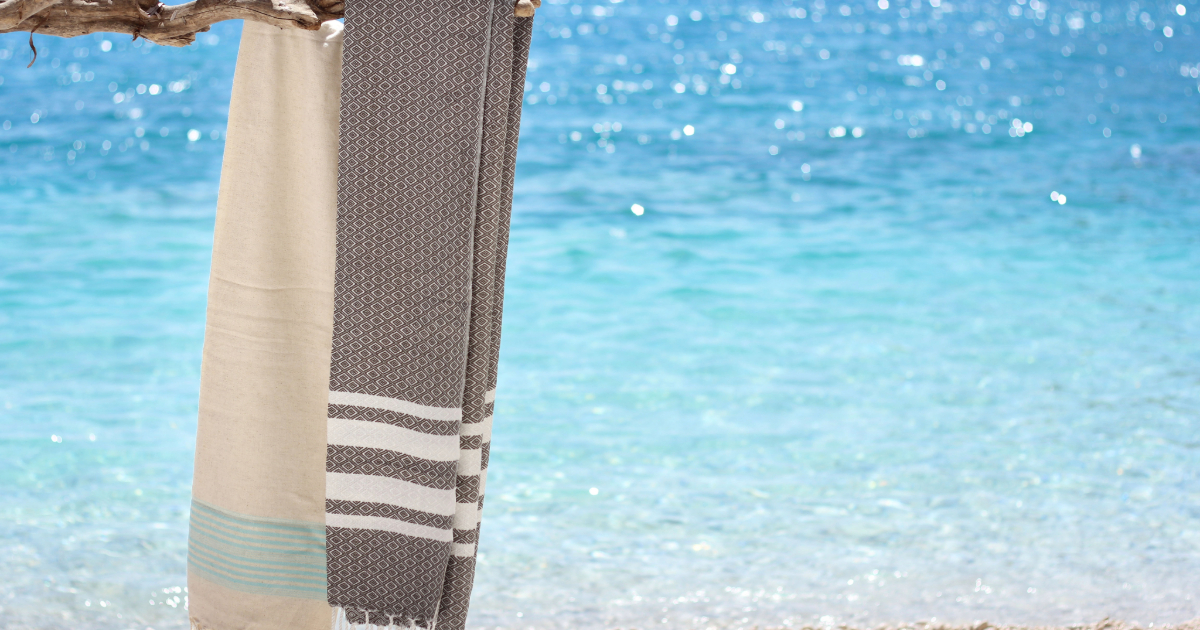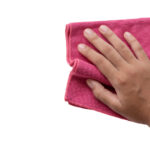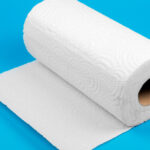When it comes to towels, you have a lot of options to choose from.

Two popular types of towels are Turkish towels and microfiber towels.
But what exactly sets them apart? And is one really better than the other?
What is a Turkish Towel?
A Turkish towel, also known as a peshtemal or fouta, is a unique style of lightweight, highly absorbent towel that originally comes from Turkey. These towels are woven using Turkish cotton, which has extra long fibers that create a very smooth and soft texture.
Some key characteristics of Turkish towels:
- Made of 100% Turkish cotton
- Long cotton fibers create very absorbent material
- Get softer and more absorbent over time
- Lightweight and quick-drying
- Often have fringed edges
- Come in array of colors and patterns
Turkish towels can work great as bath towels, beach towels, blankets, and more. The cotton material makes them very breathable as well.
Key Takeaway: Turkish towels are lightweight, breathable cotton towels that become softer and more absorbent with each wash. They often have a signature fringe detail along the edges.
What is a Microfiber Towel?
A microfiber towel is made from, you guessed it, microfiber fabric. This type of synthetic fabric has fibers that are 100 times finer than a human hair. Brands engineer them this way to be extra-absorbent and quick-drying.
Some quick characteristics of microfiber towels:
- Made of synthetic microfibers, usually polyester or polyamide
- Thinner and less fluffy than cotton towels
- Extremely lightweight and absorbent
- Designed to dry quickly
- Often used for sports, camping, travel
With their moisture-wicking capabilities, microfiber towels work nicely after a sweaty workout or as compact travel towels. They come in a range of sizes from full-body beach towels down to tiny gym towels.
Key Takeaway: Microfiber towels have ultra-fine synthetic fibers engineered to absorb a lot of moisture quickly while taking up little space, making them ideal for active lifestyles.
Turkish Towel vs Microfiber Towel Comparison
Now, let’s compare some of the nitty-gritty details of Turkish towels and microfiber towels to see how they stack up across different factors:
Absorbency
Turkish towels are incredibly absorbent thanks to the long staple Turkish cotton and the specialized weaving process. The more you wash them, the fluffier and more absorbent they become over time.
Microfiber towels essentially have millions more fibers per square inch than a regular cotton towel, so they excel at absorbing moisture quickly. However, the thin synthetic fibers don’t soak up as much liquid overall as the plush cotton in Turkish towels.
Winner: Turkish towel, for superior overall absorbency that increases over time.
Drying Time
No surprise here: microfiber towels win for fastest drying time. The synthetic material just doesn’t hold onto moisture. These towels can dry in just a couple hours after use.
Turkish towels take longer to dry out since the cotton fibers absorb and retain more water. However, they still dry faster than typical cotton bath towels. Plus, the long fibers allow more surface area for quick evaporation.
Winner: Microfiber towel for fastest dry time. But Turkish towel dries faster than regular cotton.
Durability
Thanks to the tightly-woven, long-staple cotton, Turkish towels are extremely durable. Some heirloom-quality towels last for decades or longer. The more you wash them, the softer and fluffier they become over time.
Microfiber is also a very durable synthetic material resistant to fraying and deterioration. However, many microfiber towels lose their softness and absorbency after some years with regular use. They may pill or get linty faster than Turkish cotton.
Winner: Turkish towel due to longevity and its “gets better with age” qualities. Those heirloom towels just keep going and going.
Eco-Friendliness
As a natural fiber product, Turkish towels made of organic cotton rank highly for eco-friendliness. The cotton is biodegradable and requires fewer resources like water to produce than synthetic fabrics.
Microfiber, on the other hand, is a plastic-based fabric usually made from petroleum materials. That said, many brands now use recycled bottles or other plastic waste to produce eco-friendly microfiber towels. Still, Turkish cotton wins for sustainability.
Winner: Turkish towel made of organic, biodegradable materials.
Price
You can find basic microfiber towels for $10-25 USD at big box stores. High-end sport and travel towels run $25-40.
Turkish towels start around $25 for a basic one, with premium extra-large organic towels costing $80-150+. The labor-intensive production process results in higher prices, but exceptional quality.
Winner: Depends on your budget! Go microfiber to save money upfront. Splurge on a Turkish towel for a long-lasting luxury item.
| Towel Type | Price Range |
|---|---|
| Microfiber | $10 – $40 |
| Turkish Cotton | $25 – $150+ |
Usage Versatility
Beyond just drying yourself off after a shower, both towel varieties work beautifully for:
- Beach trips
- Picnics / outdoor activities
- Camping / travel
- Everyday kitchen tasks
- Makeshift blankets on airplanes or in other tight spaces
However, Turkish towels excel as decorative, multi-purpose items for your home as well. These towels make lovely table runners, wall hangings, bath mats, chair accents, and more. The array of colors and patterns available turn them into an elegant decorative accessory.
Microfiber, while utilitarian, doesn’t have quite the same beauty or décor appeal. The synthetic material also retains odors more than natural fibers.
Winner: Turkish towel for exceptional versatility from bath to décor.
Texture/Feel
Here’s an area where personal preference makes a big difference. Do you like a fluffy, cushy towel for maximum coziness? Or a silky, smooth fabric that’s gentle on skin and hair?
Turkish towels, even when new, have a flat woven texture vs the plush terry cloth feel people associate with towels. However, the long cotton fibers make these towels very soft with a touch of natural breathability. The more washes they endure, the fluffier they become.
Microfiber towels have an ultra-fine, silk-like smoothness right out of the package. But the synthetic material creates a “plastic-y” feel some people don’t love against bare skin. They also lack breathability.
Winner: Too close to call! Choose Turkish cotton for fluffy softness or plastic-feel microfiber for silky smooth.
Odor Resistance
Natural fibers like cotton have innate odor-fighting properties that prevent bacterial growth. This gives the edge to Turkish towels for keeping foul smells at bay even after multiple uses.
Meanwhile, microfiber has a tendency to retain odors more easily since the synthetic materials don’t inhibit bacteria growth. Not ideal for a sweaty post-workout towel that gets stinky fast.
Winner: Turkish towel resists odors better long-term.
Turkish Towel vs Microfiber Towel: Which is Better Overall?
As you can see in the comparisons above, both towel varieties have pros and cons that make them well-suited to particular settings and personal preferences.
For travelers and athletes, the winning combination of absorbency, fast drying performance, and portability likely makes microfiber towels the better choice. They work great for camping, fitness, pool days, or other active lifestyles where space comes at a premium.
Meanwhile, Turkish towels edge out microfiber for their luxurious feel, enduring quality that heightens over time, eco-friendly fabric, and versatility as decorative home accessories. If you want a beautiful, luminously soft everyday towel that eventually becomes family heirloom, Turkish cotton takes the crown.
As with most purchasing decisions, taking some time to consider when, why, and how you plan to use your towels makes it easier to decide which variety best fits your needs. Use the comparisons above to help guide your own towel selection process.
Either way, replacing old, tattered bath towels with fresh new Turkish or microfiber towels makes a wonderful gift idea as well!
FAQs
Are microfiber towels antibacterial?
The structure of microfiber inhibits bacterial growth better than cotton towels. So microfiber towels have some natural antibacterial properties, but not as much as materials marketed specifically as “antibacterial.”
How do you wash Turkish towels?
Wash Turkish towels in cold water on a gentle cycle. Avoid fabric softener and bleach. Tumble dry on low. The high-quality cotton is durable enough for regular machine washing. Proper care maximizes softness and absorbency over time.
What’s better for hair, microfiber or Turkish towel?
For hair drying, Turkish towels tend to be more gentle and less damaging thanks to the soft cotton fibers. Rubbing hair aggressively with thin microfiber can cause extra breakage. However, a microfiber hair wrap can gently soak moisture without rough rubbing.
Are microfiber towels bad for your skin?
Not necessarily bad, but some people find microfiber causes skin irritation, rashes, or acne breakouts. The plastic-like synthetic material lacks breathability compared to cotton. Those with sensitive skin might tolerate organic Turkish towels better.
Why are Turkish towels so expensive?
Several factors make Turkish towels more expensive than regular cotton towels:
- Turkish cotton itself costs more than regular cotton
- Small batch artisanal manufacturing
- Labor-intensive spinning, weaving, wash/dry process
- All done by hand instead of mass factory production
- Time + skill involved results in premium pricing
How do Turkish towels compare to bamboo towels?
Both bamboo and Turkish towels are very absorbent, sustainable materials. However, bamboo absorbs moisture faster while Turkish cotton holds more liquid overall. Bamboo also naturally resists odor and bacteria better. Meanwhile, Turkish towels feel softer and more luxurious. Choose based on your priorities!
Can you put Turkish towels in the dryer?
Yes! Tumble drying is recommended to maximize softness and absorbency. Just be sure to use low heat, and avoid fabric softener or dryer sheets which can diminish the towels’ performance. Line drying works too, but may take longer.
How long do Turkish towels last?
Authentic Turkish towels last for many years or even decades with proper care. The long-strand cotton and dense weave make them very durable. Expect to enjoy your high quality Turkish towels for a lifetime if you care for them appropriately!
Conclusion
Turkish and microfiber towels both make excellent additions to your home textile collection.
Take some time to consider whether you prefer natural or synthetic materials, maximizing luxury and coziness or portability and convenience, investing in heirloom quality goods or saving money on budget basics.







